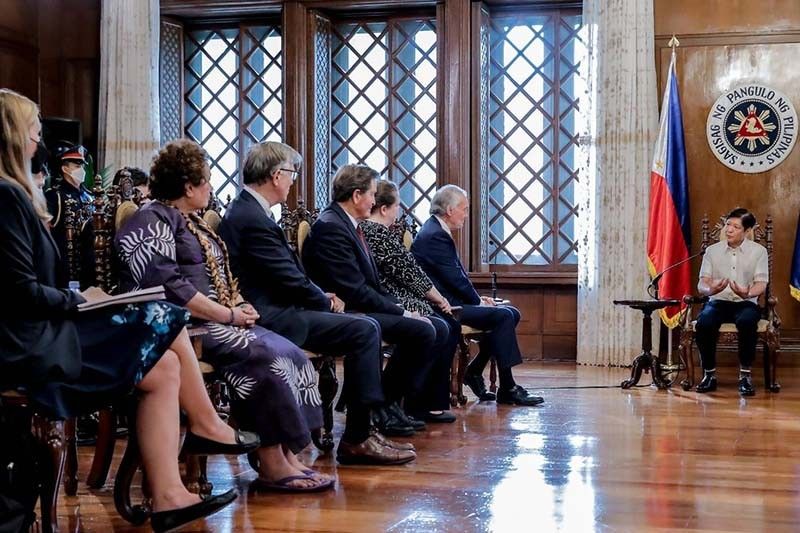Strengthening Philippines’ trilateral security relations with US, Australia

Two dangerous flashpoints currently surround the Philippines. The first is the West Philippine Sea dispute, where an expansionist China confronts the Philippines and three littoral Southeast Asian states in the South China Sea. The second and more dangerous one is the Taiwan Straits Crisis, where China is pursuing its irredentist claim against the self-governing island of Taiwan.
Since 1949, China has considered Taiwan a renegade province ruled by the ousted Nationalist forces that had to be redeemed, either by force or persuasion, through a historic reunification with the mainland.
China’s emergence as an economic power in the first decade of the 21st century, the rise in power by President Xi Jinping, the return to power by the pro-independence Democratic Progressive Party led by President Tsai Ing-wen in Taiwan, and the US-China strategic competition have made the Taiwan Straits Crisis the most volatile flashpoint in East Asia.
US Speaker of the House Nancy Pelosi’s recent visit to Taiwan poured more fuel into this geostrategic powder keg that could ignite a major armed conflict between China on the one hand and the US, Taiwan, Japan and Australia on the other hand.
A major armed conflict in the South China Sea or the Taiwan Straits will pull the Philippines to take a side. Ideally, the Philippines should declare neutrality.
Unfortunately, the Philippines lacks one crucial component necessary for pursuing a policy of neutrality—a powerful military. As shown by Sweden and Switzerland during the Second World War and Cold War, a country can only implement effective neutrality if it is a case of armed neutrality.
Without a powerful military, the Philippines has no choice but to rely on its alliance with the US and its security partnership with Australia to face the security challenges of the 21st century.
The Philippine-Australia security partnership
The Philippines has long-standing defense cooperation with Australia facilitated by a series of bilateral agreements. The oldest is the memorandum of understanding (MOU) on cooperative defense activities.
This MOU notes the existence of an active security relationship between the Philippines and Australia, as shown by the significant number of AFP personnel undertaking training in Australian Défense Force Facilities and the potential for increased cooperative defense activity offered by the Armed Forces of the Philippines modernization program.
The most significant of these security agreements is the 2007 Philippine-Australia Status of Forces Agreement (SOFA), which provided a comprehensive legal framework to support troops engaged in defense cooperation activities in both countries. The SOFA offers legal guarantees for Australian forces conducting joint-counter terrorism exercises in the Philippines. It also commits the Australian Defense Force (ADF) to advise the AFP on logistics and its acquisition policy.
Former President Rodrigo Duterte’s efforts to gravitate closer to Beijing alarmed Canberra as this would strain Philippine-US relations. This allowed Australia to enhance its security ties with the Philippines, given that Washington and Canberra are the only two countries with formalized security arrangements with Manila.
Moreover, given that Philippine-Australia security relations partly operate within the context of the US-led hub-and-spokes bilateral alliance system in Asia, the bilateral relationship between Manila and Canberra was seen as robust enough to stand on its own. The dramatic improvement in Philippine-Australian Security relations is reflected in the two countries signing various bilateral security agreements in the last six years.
The trilateral Philippine-US-Australia security partnership
On July 30, 2021, President Duterte withdrew the letter of termination for the 1999 Philippine-US Visiting Forces Agreement (VFA) after he met US Defense Secretary Lloyd Austin during the latter’s official visit to the Philippines. President Duterte’s decision to bring back the VFA on track is his long over-due reaffirmation of the importance of the Philippine-US to his country’s security.
From November 15 to 16, 2021, Philippine and US defense and foreign affairs officials met in Washington D.C. to reinvigorate the alliance, three months after President Duterte’s decision to withdraw the VFA’s notice of termination. The two countries formulated new bilateral defense guidelines in the form of the November 16, 2021 “Joint Vision for a 21st Century United States-Philippines Partnership.”
These developments indicate the revival of the Philippines-US security relations after President Duterte’s efforts to marginalize the alliance as part of his failed efforts to appease China.
This has two implications for Philippine-Australian security partnerships: 1) It provides Australia the opportunity to assist the US in tipping the scale as the Philippines adjusts its appeasement policy to China to one characterized as limited hard balancing, and 2) it is marginalizing the Philippine-Australian security partnership as the two formal treaty allies put their security relations back on track. Australia should adopt a Goldilocks approach—not too hot, not too cold—in dealing with this problem.
This requires Canberra to maintain the momentum generated by the improvement of its security ties triggered by the former Duterte administration’s efforts to undermine the Philippine and US alliance; at the same time, assisting Washington and the other US allies tip the scale in the Philippines’s delicate balancing effort from appeasing to applying a limited hard balancing policy toward China in favor of the latter.
To strengthen their trilateral security partnership, the three like-minded countries should consider the following. First, they should cooperate in establishing a vigorous training and education program relative to the Philippine military modernization. Second, organize a consortium of like-minded countries that will program and systematize their military training, assistance, and sales to the Philippines to modernize its armed forces.
And third, ponder the prudence of the opportunistic policy of boosting Philippine-Australian security partnership to the point that it will be robust enough to stand on its own without considering that this partnership exists and operates within the broader context of the US-led hub-and-spokes system in the Indo-Pacific region.
Renato Cruz De Castro is trustee and program convenor of think tank Stratbase Institute.
- Latest





























